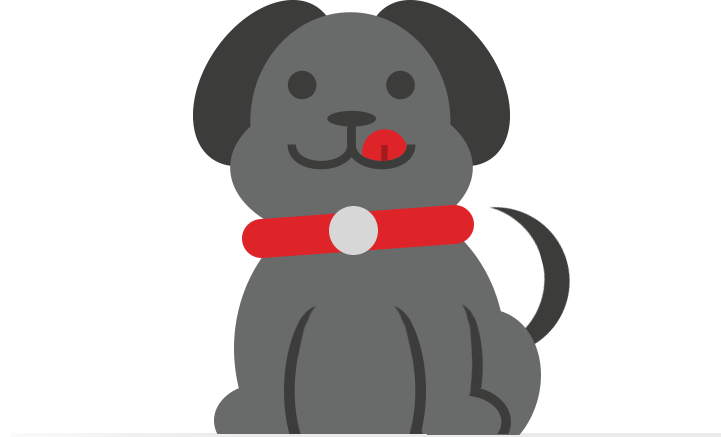How to desensitise your dog to loud noises
Back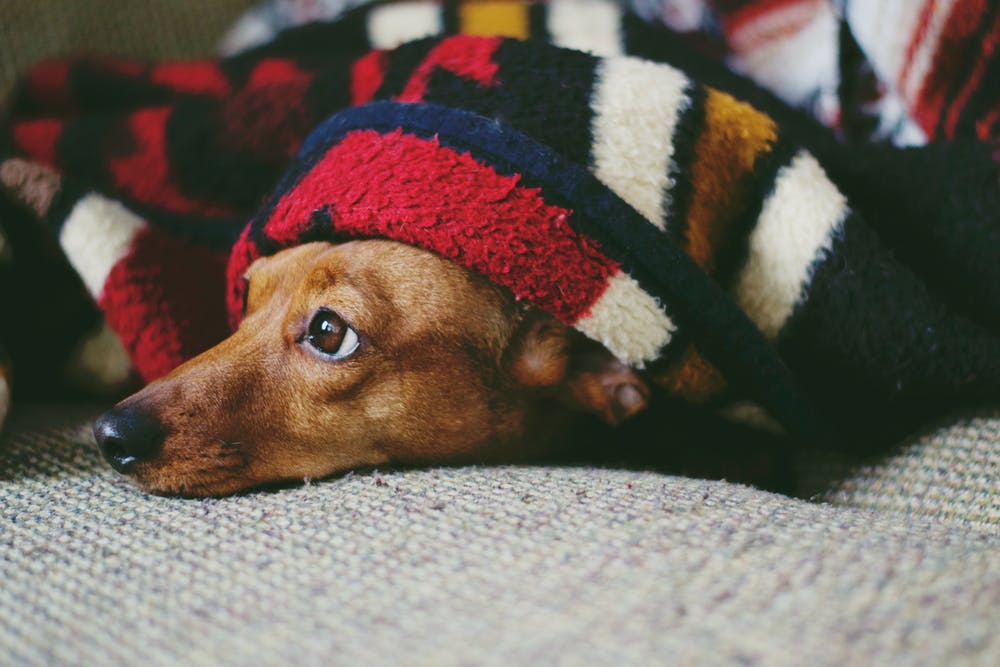
With the summer coming to an end and the nights starting to draw in many people will be looking forward to the next holidays and events in their calendar. Whereas fireworks night is a highlight in the calendar for so many people, it is also a period of the year that fills some dog owners with dread. Many dogs find fireworks and loud noises in general unsettling, with some dogs finding them terrifying and stressful and leading to a spiral of anxiety throughout the autumn and winter season.
It is also worth noting that fireworks are a common part of different events and festivals such as weddings, Eid, 4th of July, Chinese New Year. Your dog may also be scared of other loud noises such as traffic, crying, shouting, alarms, loud music, thunderstorms or bangs. This advice is applicable to any or all of these fears and noises.
Please note that this advice aims to keep your dog calm and manage their stress whether it is caused by fireworks or other loud noises. Even once your dog is desensitised to fireworks we would still advise that you should never take your dog to a fireworks display and you should always think carefully about when you walk your dog during fireworks season generally, dogs are sentient beings with their own thoughts and feelings and can still be unpredictable even after completing the training process. If your dog is still stressed by the sounds after following this process we would recommend consulting a vet for further advice.
Why do dogs hate fireworks?
The combination of flashing lights, loud and unpredictable noises and general festivities (darkness, shouting, crowds, loud tanoys) can be very frightening for dogs, even for those which are normally very relaxed. A dog's hearing is very sensitive, moreso than a humans, hearing is basically a dog's superpower but this isn't a good thing in all circumstances. Dogs can hear nearly twice as many frequencies as humans and they can hear high frequency sounds. They can also hear sounds that are four times further away- for example what a human hears from five metres away, a dog will hear from 20 metres away. This is due to the way their ears are designed to cup sound, in the same way as a human cupping their hand around their ear or putting a glass to a wall or door. This is why dog's can hear a dog whistle but humans can't. This can mean that they are far more sensitive to loud or sudden noises, as they basically hear them in an amplified way, making them far more frightening.
How can I desensitise my dog to fireworks and loud noises?- Before you start
There are a couple of different methods that you can use to desensitise your dog to loud noises and fireworks. It is important that whichever method you choose to desensitise your dog that you undertake the process indoors (to avoid your dog getting spooked and bolting off), and that you do things gradually over time and at a pace that your dog feels comfortable with. This also removes other distractions which might affect your dog's ability to progress through the training process. You should choose a room or place indoors where your dog is very comfortable and at ease (perhaps when they are in their bed for example). If your dog starts to get stressed or upset you should stop immediately and go back over previous steps at a different time, once your dog has calmed down, until they are able to cope with the later stages of the process. Bear in mind that this process could take months, so start early, and don't expect your dog to advance at a pace that suits you, you need to go at their pace. You should never get stressed yourself and should remain calm at all times, never punish your dog for their fear or anxiety or force them to go near the loud noise as this is only likely to exacerbate the problem and will make their behaviour worse.
Before you start you will need to have a recording of fireworks, or the loud noises that your dog is scared of. Ideally this needs to be a clear recording and at least around 10 minutes long in duration.
How can I desensitise my dog to fireworks and loud noises?
Settle your dog indoors in the space you have identified where they are most comfortable to start the training. Play the sounds at the lowest volume that your dog is least scared of. Increase this very slowly and monitor your dogs reaction, pay attention to even small changes in behaviour, such as twitching ears, widening eyes or burying their head. As soon as you see any reaction stop increasing the volume and allow the recording to play for a few minutes until your dog gets used to it.
If your dog gets stressed, keep calm and stop immediately. Return to the exercise at another time and go back a few steps until your dog does not react.
Play the sounds at a low level for 5 or 10 minutes at a time, and up to 3 or 4 times per day. Once your dog no longer responds to the noise you should increase the volume slightly next time. If your dog shows signs of stress stop immediately and return back to the lower volume.
Are there other things I can do to mimise my dog's stress during fireworks season?
If it is too late for you to start the gradual process of desensitising your dog to fireworks or loud noises you should try the following. These are also things that you can do in addition to the training in order to help manage and minismise your dog's stress.
-
never take your dog to a fireworks display, even if they are desensitised to fireworks.
-
Avoid letting your dog outdoors during dark evenings during fireworks season or if fireworks are going off in your local area. To note that there is a curfew for fireworks of 11pm for most of the year but this is extended to midnight for bonfire night. Walk your dog earlier in the evening, ideally before it gets dark and ensure they have ample toilet breaks before it gets dark during this period. You could also try feeding them earlier so that they settle down and relax earlier in the day gradually during these periods and are less likely to be upset by fireworks noises. Make sure that these changes are introduced gradually so as not to disrupt your dog's routine- dogs are creatures of habit after all!
-
Leave the radio or tv on at low volume, classical music or music with a louder bass is perfect for masking these sounds. Ensure that the volume of the tv or radio is not too high so as to have the opposite effect on your dog, focus on creating a calm, normal and safe space.
-
Create a "safe space" in your home where your dog can hide from fireworks or loud noises. This could be a table with a blanket draped over it or a blanket over their crate or carrier. It is important that you do not "trap" your dog in the safe space as this will add to their stress, but give them plenty of options of where they can go to feel safe. It is also important that they are not isolated from you, as they may find your presence and some cuddles reassuring so ensure that you support them. Dog snuggler beds or beds that serve as places to hide are also great for this purpose.
| Sound Sleep Donut Blanket, Anti-anxiety snuggler £17.99 |
| Allisandro Washable Dog Blanket £12.99 |
-
You could also consider a dog thundershirt which can help dogs to feel calm and less anxious. They work by gently applying pressure to your dog's chest, helping to calm their breathing and reduce fear and anxiety.
-
Ensure that your dog is microchipped and that their microchip details are up to date. This will give you peace of mind if the worst case scenario should happen and your dog is to bolt when hearing a loud noise that spooks them. In April 2016 it became a legal requirement to microchip your dog.
-
Keep calm yourself- this will show your dog that there is nothing to stress about and help them to stay calm. Reassuring your pet is fine but do not go over the top or change your behaviour too much as this could add to your dog's anxiety levels.
-
Make sure that your garden and home are escape proof just to check that your dog doesn't run away if they get scared by a sudden loud noise or firework sound.
-
The Dog's Trust have some great Sound Therapy resources for pets that help with this process and have been developed by veterinarians specialising in pet behavioural therapy.
-
If your dog does not respond well to this training or is still stressed after following this advice, we recommend consulting your vet for further advice.
-
Give your dog a long lasting dog chew or mentally stimulating toy such as stuffing a puzzle toy or Kong to keep them distracted and give them something to focus on.
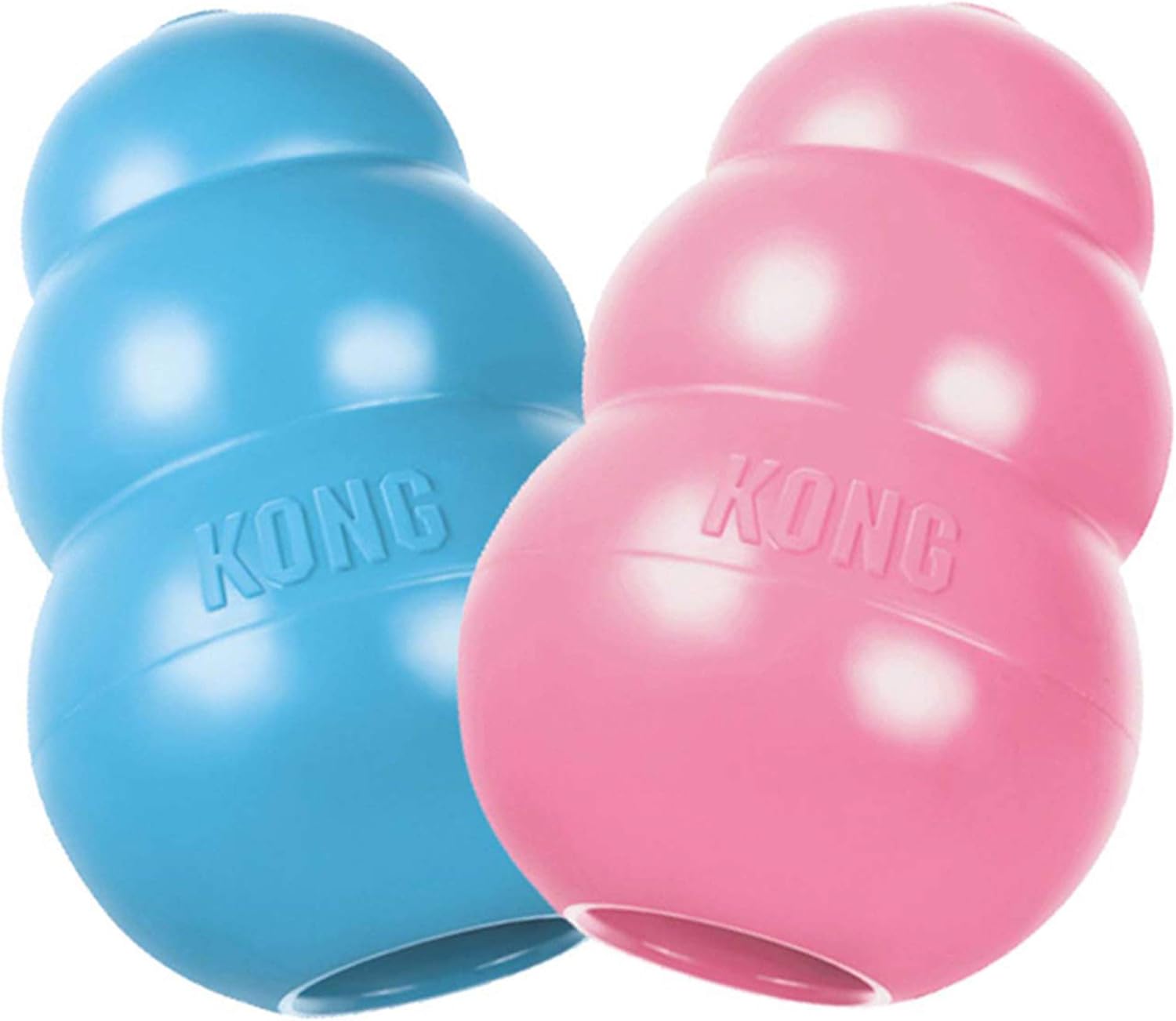 |
Kong- Puppy £9.55 |
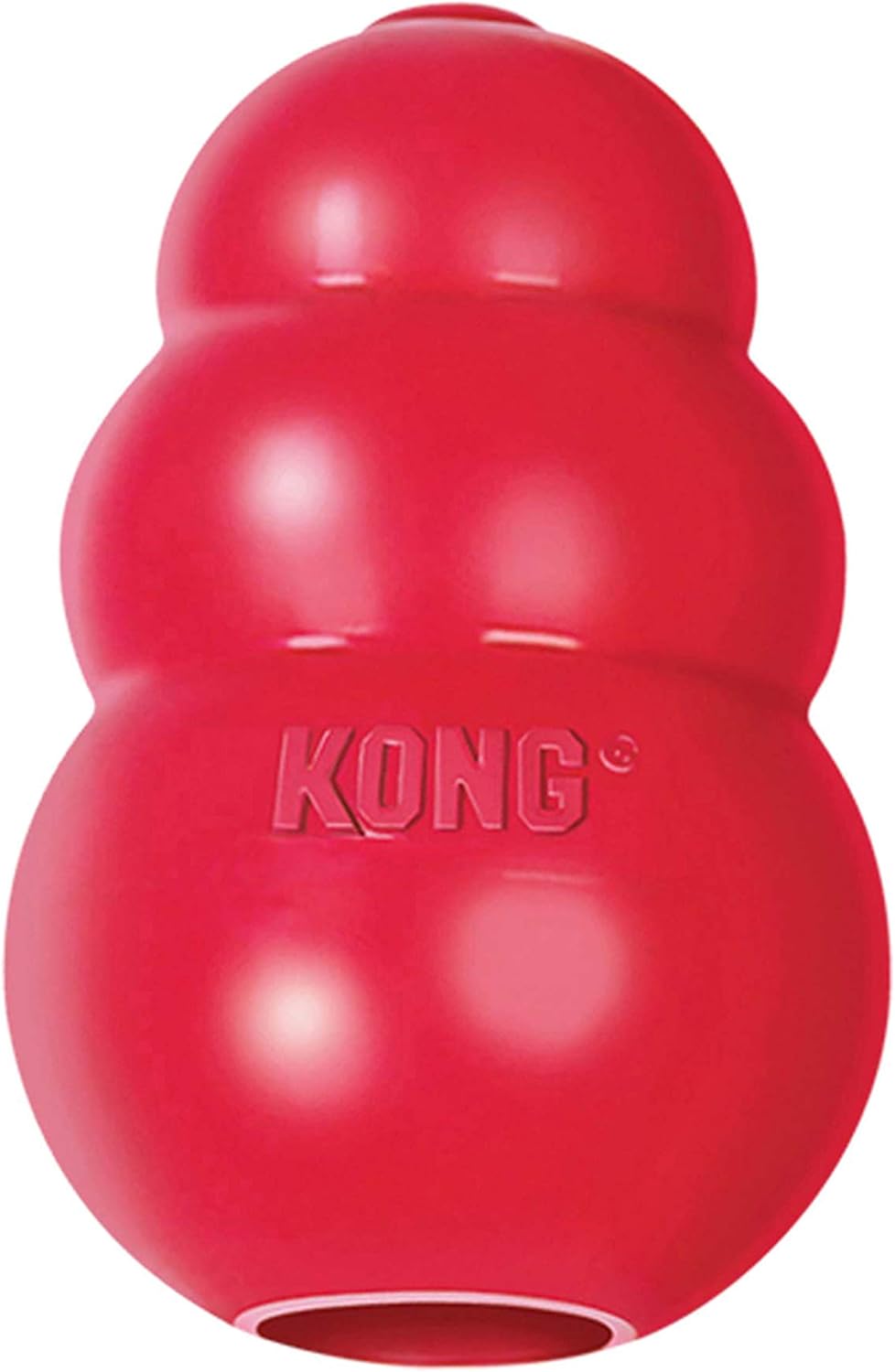 |
Kong-Classic £8.50 |
 |
Nylabone Dura Chew Extreme Tough Dog Bone Toy (bacon flavour) £5.26 |
 |
Nina Ottoson by Outward Hound Dog Brick Interactive Puzzle Toy £16.00 |
How can I build a positive association between my dog and loud noises
Once your dog is desensitised to the sound of fireworks or loud noises that they were scared of you can start to change their relationship with these noises, by building a positive association. This means that when your dog hears the noise they are not only not scared, but they realise that something good is going to happen when they hear that noise.
To do this you should play the sounds at low volume at meal times when you are preparing your dog's food or you could bring out their toys to play whilst playing the sounds at low volume. Once your dog has finished eating or playing turn off the sounds straight away. Repeat the exercise again over several days until your dog starts to get excited when they hear the noises.
See also:
Best Pet Cameras for Dog Owners
Separation Anxiety: Leaving your dog at home after lockdown
How much does dog boarding cost?
Preparing your dog for fireworks night
Similar Articles
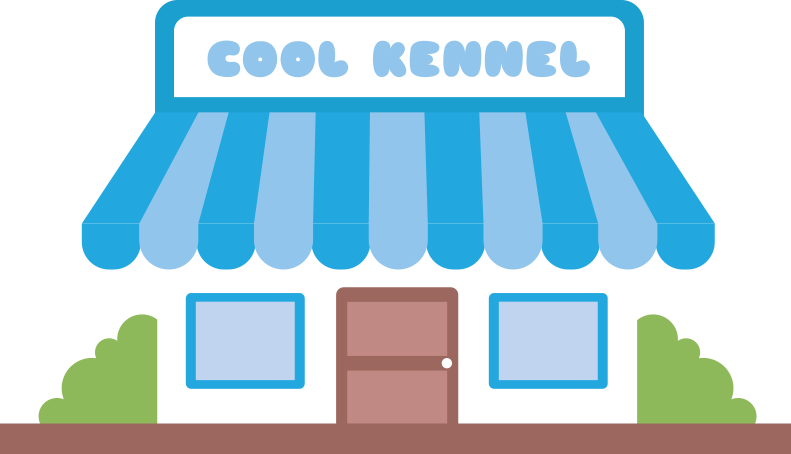
Good Dogs. Good Kennels.
The Good Kennel Guide takes the stress out of dog boarding by only listing licensed kennels and boarders who meet the standards required by the Animal Licensing (Licensing of Activities Involving Animals) Regulations 2018.
All kennels and boarders that hold a valid licence have a free listing on the website which kennel owners and boarders can “claim” by creating a free account - this allows them to personalise some of their listing and interact with dog owners.
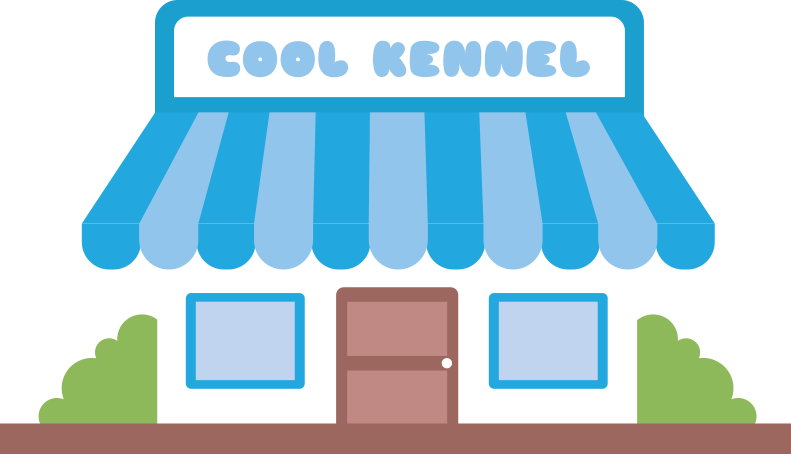
An easy-to-use system for dog owners
The Good Kennel Guide takes the stress out of dog boarding by only listing licensed kennels and boarders who meet the standards required by the Animal Boarding Act 1963.
Dog owners can sign up and create a profile here - it's really simple, and only takes a few moments.
Add your dog to your private profile to submit enquiries to kennel owners and boarders, send messages, and leave reviews following boarding.
Kennel Locations
England
Airports
